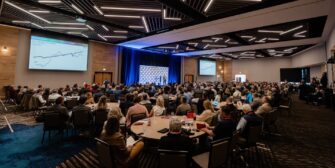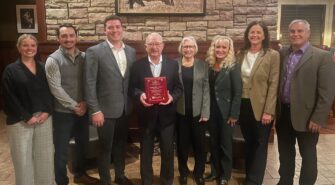3 Family Businesses Honored with Awards from Prairie Family Business Association
Recent News
After 132 years in business, you learn how to adapt.
So when COVID-19 forced Montgomery’s to cancel its annual four-day auditorium sale in Madison, the furniture retailer figured out how to sell the merchandise anyway.
Thanks to Facebook, the store started selling its minimally damaged and discontinued merchandise through a series of live sales.
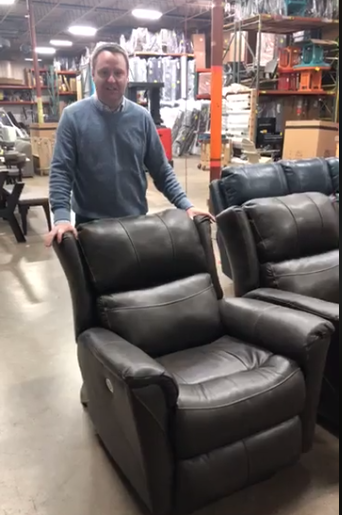
“That’s been a lot of fun, and customers really seem to enjoy it,” president Eric Sinclair said. “You can imagine the auditorium sale was truckloads of product, and our warehouses are beyond full, so we take the products in small segments. It’s been amazing.”
For a business that can trace challenges throughout history back to Native American wars when it opened in 1888, the current pandemic is a reminder that better times will be coming.
“We just continue to find ways to survive by care of our customers,” Sinclair said.
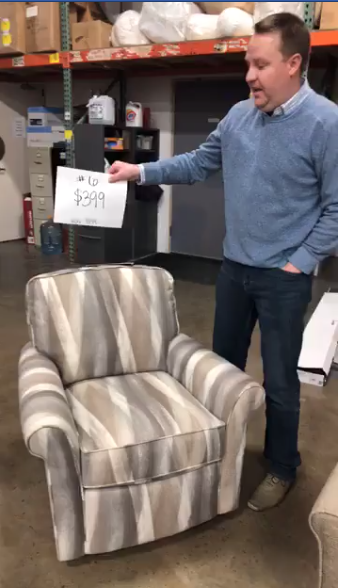
Family businesses statewide are doing the same, from adjusting their business models to finding ways to support their communities.
“There is so much innovation occurring among our family businesses,” said Stephanie Larscheid, executive director of the Prairie Family Business Association.
“We’ve done our best to connect them with the resources they have needed at every stage of this pandemic, and they definitely have taken it from there.”
At Montgomery’s, design services have gone virtual, doing Skype sessions with customers, looking through rooms and going through options.
“It’s been fascinating to see how well that’s working,” Sinclair said. “One thing that’s been fun is consumers at home looking at their surroundings and having extra time on their hands are starting design projects.”
The stores’ large square footage also allows in-person shopping, he said.
“We might have one or two customers at a time, so we’re not on top of each other,” he said. “I’ve found these might be times for consumers to get the best deals. If they are comfortable with it, they can save a lot purchasing right now.”
Montgomery’s also has changed its delivery approach to ship and inspect the products while leaving them in customers’ garages without entering homes.
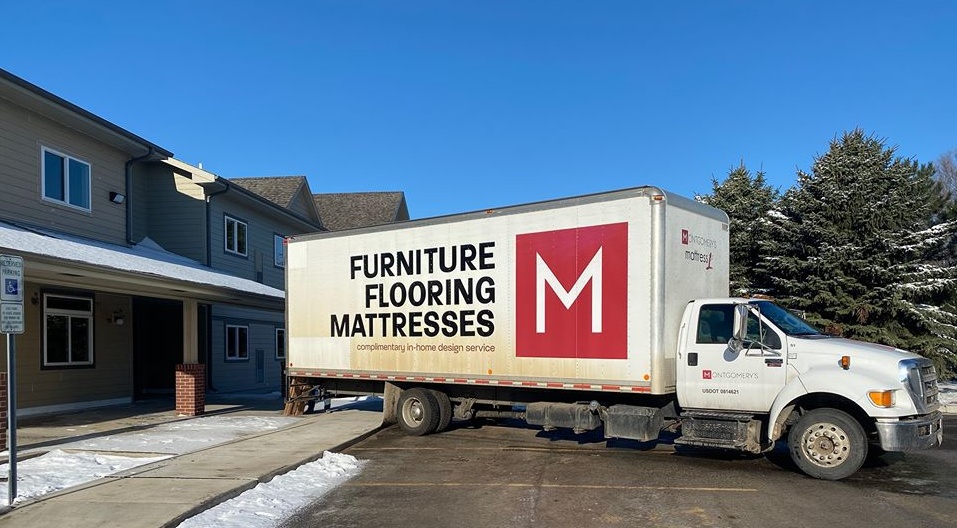
To give back, the store hosted blood mobiles in its parking lots to encourage donations.
“We’re always trying to figure out how to give back to the communities that are good to us,” Sinclair said.
High-demand time
In Watertown, Moffatt Products has the same mind-set, even as it juggles unprecedented demand for its products. The third-generation family business designs and manufactures a variety of flex-arm products.
“Immediately, we saw several of our top customers are definitely making extra products right now to meet the surge capacity nationally,” said Mark Moffatt, the third generation to help lead the business, who serves as its general manager.
“Hospital beds and ventilators are two of the product lines we’re supporting components for, and they’re both surging to keep up with demand.”
Moffatt manufactures a line management kit consisting of two flexible arms that attach to the headboard of a hospital bed on both sides of a patient’s head.
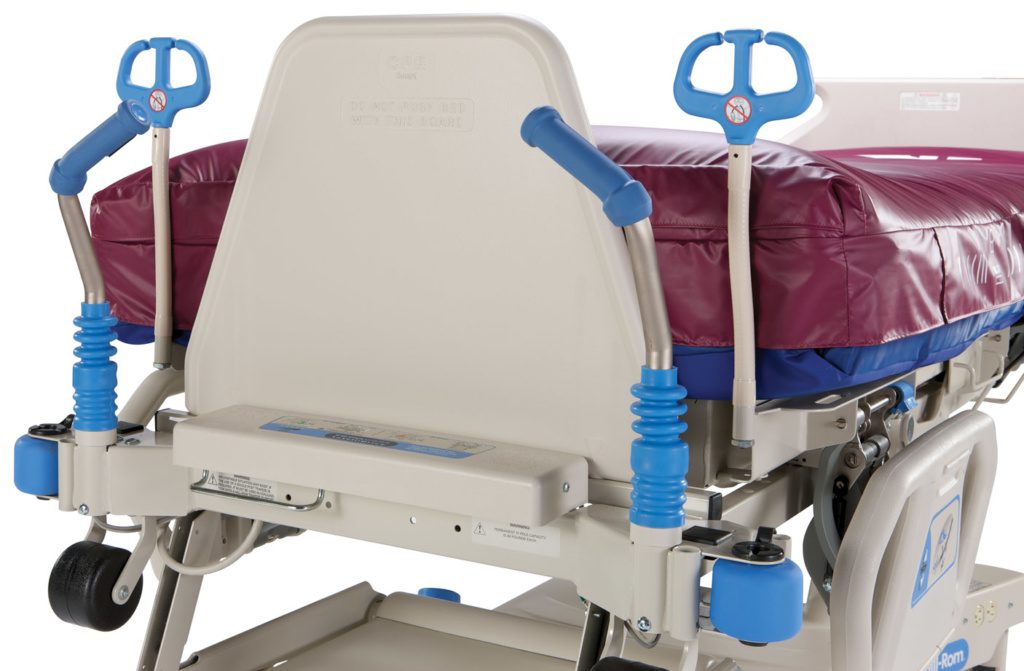
“These beds are transport beds,” Mark’s father and company president Dave Moffatt explained. “To meet demand, our clients have had to streamline the product line down to four beds, and they aren’t doing anything else unless there’s an emergency. Our products are used on two of the four beds, so the volume is soaring on those.”
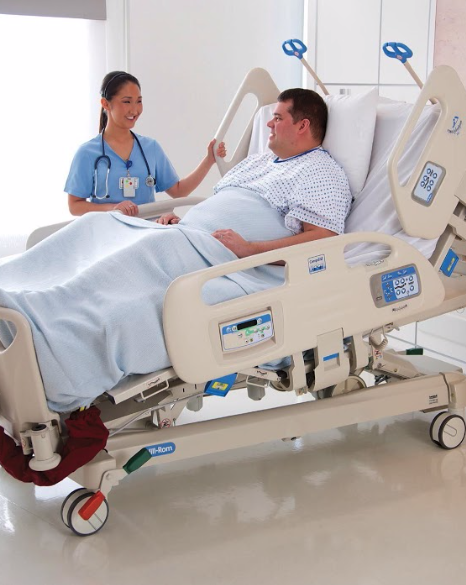
The company also makes a flexible arm that holds a junction where breathing tubes come together in front of a patient, holding it in a comfortable position.
“We made sure we had inventory, and sure enough, after two weeks the orders really began to flow,” Dave Moffatt said. “I think everybody’s building ventilators are much as they can right now.”
Moffatt Products has reconfigured its production line to involve multiple people in processes that typically require one or two. And it has worked with suppliers to get a “much higher flow of material coming our way and sustain it,” Mark Moffatt said.
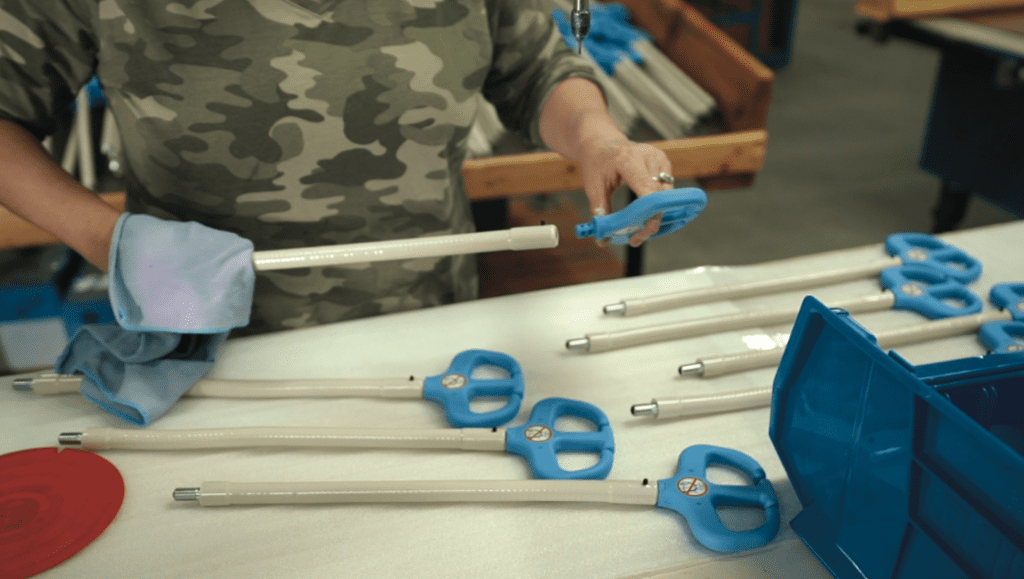
The biggest concern is keeping the 20-person team healthy.
“And not knowing how the crisis is going to affect our company and the community,” Dave Moffatt said. “The picture can change so rapidly that’s probably our biggest concern.”
They also are helping their community through the crisis. Mark’s wife, Jenna, did her graduate studies in public health. She’s part of the company ownership and is a stay-at-home mother of three who serves on several community boards.
“It was becoming evident there was a need for delivery of necessities to high-risk individuals’ homes, so I started asking questions in the community and came up with a solid support network to create a volunteer system,” she said. “Individuals purchase their necessities, and we provide a volunteer to do pickup and delivery to their homes contact-free.”
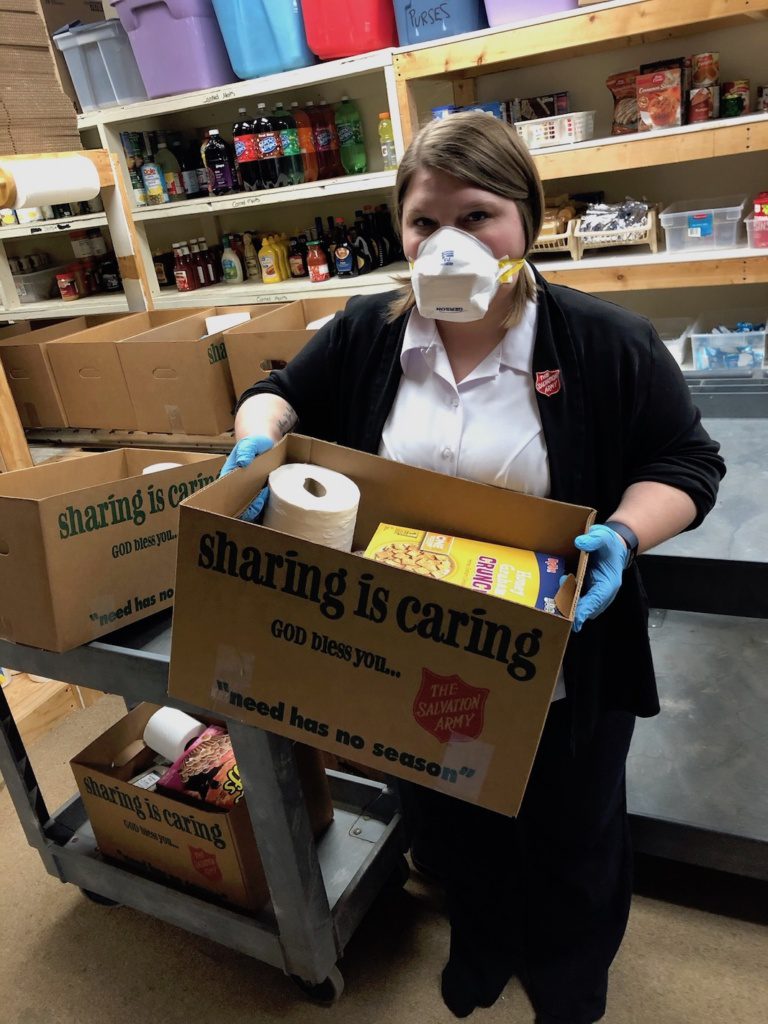
Capt. Karissa Zumwalt of the Watertown Salvation Army
She also has worked with various organizations to coordinate with the county, grocers and pharmacies to provide hundreds of boxes of food and over-the-counter medications to those in need.
“It’s been really neat to be able to use some of my training in public health and help address a need for our community.”
The Moffatts also have leaned on their relationships for help in navigating the crisis. Longtime Prairie Family Business Association members, their first exposure to a collective business call around COVID-19 came through the association.
“On the first week, we were all in the same boat and just sharing guidelines and trying to get all our information gathered and processed, and that led to other topics about operating safely and loan programs, so it’s been a lot of help,” Mark Moffatt said. “We’re very grateful to Prairie Family Business Association for pulling that together. They didn’t hesitate. I think theirs was the first call organized in our region.”
The Moffatts also see a link between the current period of economic uncertainty and the recession more than a decade ago.
In 2009, their sales dropped up to 40 percent, which was common for manufacturers, Dave Moffatt said.
“It was a devastating loss of sales. And we didn’t have a lot in the pipeline at the time, so we had to say yes to any inquiry that came our way. And the medical community had just started reaching out to us.”
They took on a project that they “would easily have said no” to in other times because it required them to do so many things they had never done, he continued.
“So we went to work on it, and we had to develop processes and components we had never used before to solve their problems. But it opened the door to higher quality components and methods that opened the door to all this medical business. All this medical business came out of that recession. It’s just stunning to me, and it was my biggest lesson in business of embracing recessions. They make you do things you wouldn’t normally do. So I’m trying to adopt the same attitude here and see where the challenges are that we have to step up and solve. Because they will be the seeds of tomorrow’s success.”
Keeping things clean
A well-timed investment also is paying off for Intek Cleaning & Restoration in Sioux Falls.
A relatively new product, Steramist, uses binary ionization technology to kill microbial pathogens on contact with five seconds of application time.
It was developed by what Intek owner Jerry Berg called a government think tank after the anthrax scare of the early 2000s.
“I just happened to be in the right place at the right time to hear about it and bought into it in 2016,” said Berg, who founded Intek in 1984 and now works with his two sons in the business.
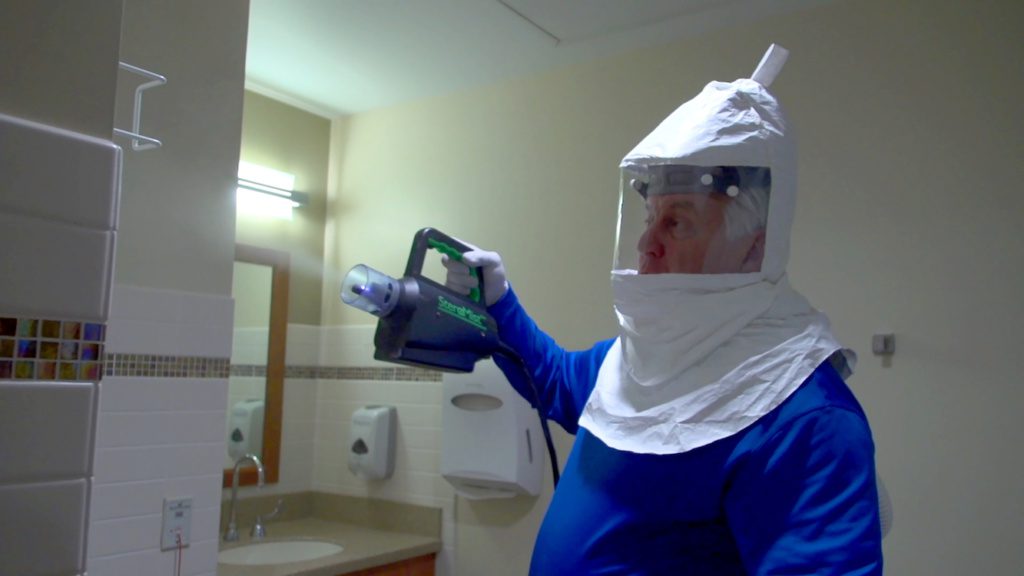
“It’s worked very well, including on Ebola in Africa and other pandemics. I have three machines and 20 people trained, and I’m going to get three more, so we have availability all day long in a variety of places.”
His crews use handheld sprayers on many surfaces. Spray it on a desk, and it also envelops the area below, he said.
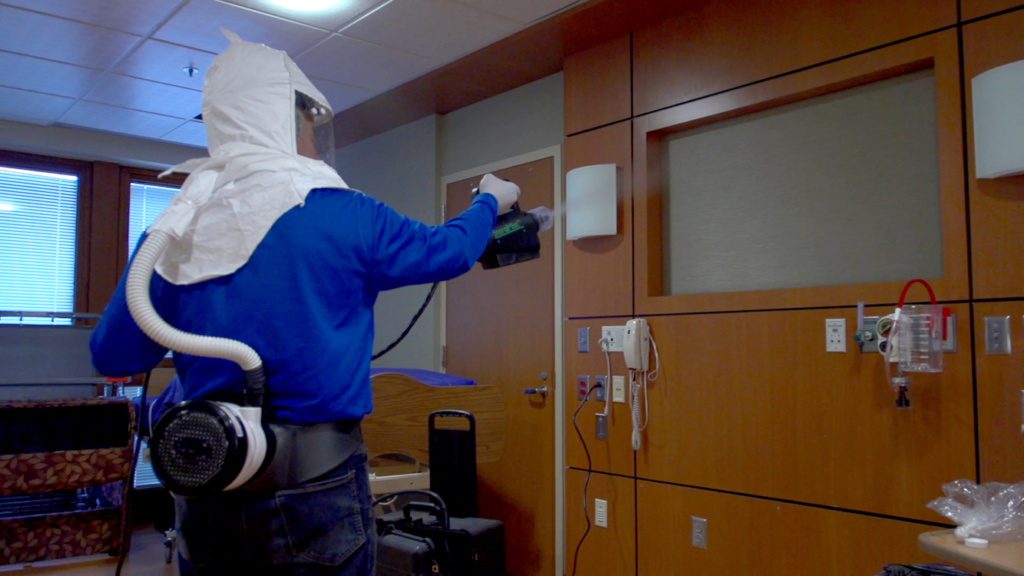
“It will kill whatever it comes in contact with as far as the virus,” he said. “We’ve done convenience stores, call centers, a variety of places. A day care just called in after an employee had it. I wasn’t thinking of an epidemic or pandemic when I bought into it, but it just seemed like the right things to do.”
He also has continued to experience demand for the company’s other services and is staggering his employees to vary their start times and keep the same teams of workers together.
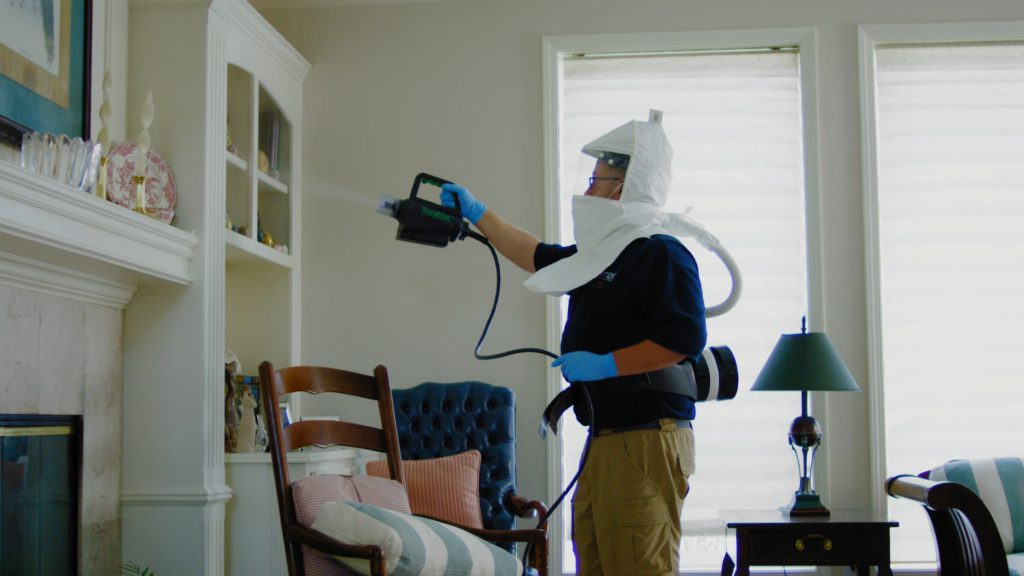
“They’ve been busy. Of course, people will have broken pipes and water and sump pumps that fail. Furnace cleaning is steady, and each team will do two per day. We try to have people out of the house, so they’re not in contact with us or us with them. They usually go away for two hours, and we don’t get much push back.”
Eventually, he plans to leverage his membership in the Prairie Family Business Association as he knows he needs to work on an eventual transition to his sons.
Berg and the second generation of Intek are involved in events and affinity peer groups through Prairie Family Business Association that enable them to talk through succession planning confidentially with peer family business owners.
For now, he’s attempting to work through an unprecedented year before focusing more on the future.
“A year ago, we had 7 inches of rain over a couple feet of snow. We had 500 phone calls. And then, of course, the tornadoes. It just takes your breath away, from a business perspective, to try and do any planning when these events happen.”
Creativity is key
The father-son team at Austad’s Golf has been tackling its own challenges as the regional golf chain based in Sioux Falls enters its busiest season.
“Our biggest months are March through June, which is unfortunate timing. But pandemics don’t have good timing regardless,” said president Ryan Austad, the third generation of the family business.
“It’s very hard for the golf industry because these are the four months you’ve got to make it. It’s a challenge, but it’s a challenge for everyone. We’ve seen a significant drop-off, but I’ve told our staff we’ve been around 57 years and we’ve seen a lot of crisis. We’ll weather this, but businesses have to be creative.”
In the case of Austad’s, it has meant trying to bring “a breath of fresh air” through limited digital marketing, which has taken the form of fun videos like this.
“We’re seeing much higher traffic on our website, much higher sales,” Austad said. “I think you’ll see pent-up demand for golf because in the Midwest we only get five or six months, so you’re going to see people with cabin fever ready to get out and play golf.”
They also have been able to keep stores open in South Dakota, North Dakota and Nebraska with limited hours and new additions such as curbside pickup.
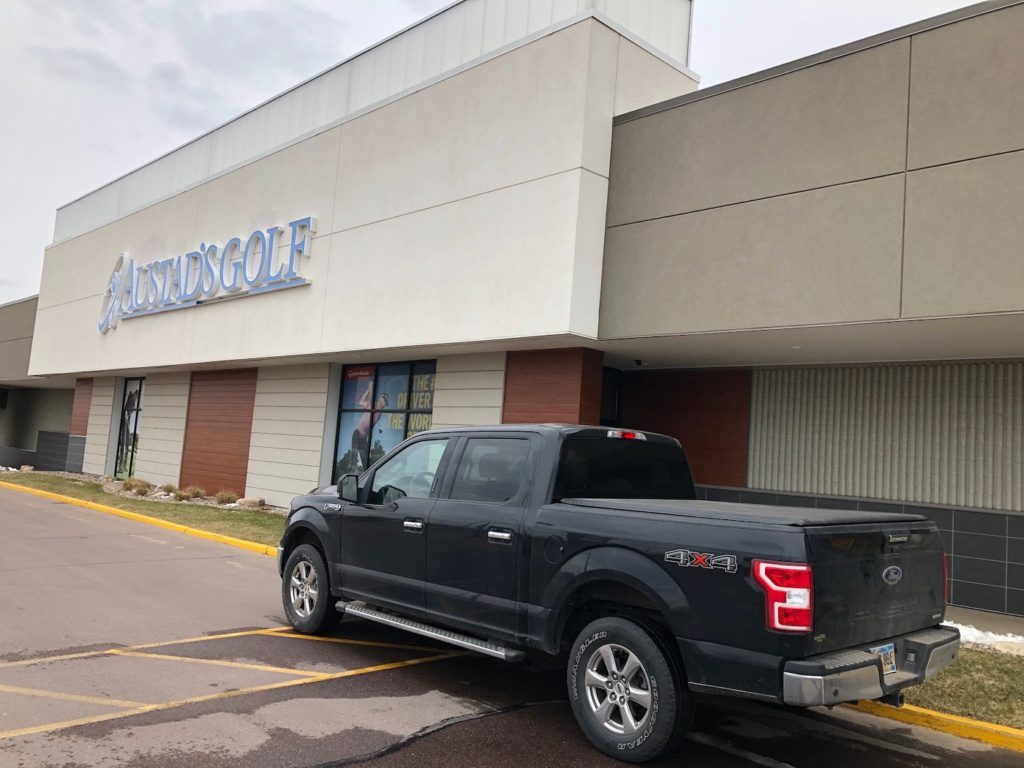
“We told our staff early on we are golf experts, not public health experts,” Austad said. “So whatever the guidelines are or whatever we’re being told to ensure safety, that’s exactly what we’re going to do.”
The number of customers allowed in the stores at one time is limited. Equipment is constantly sanitized. Private fittings are being scheduled during and after store hours.
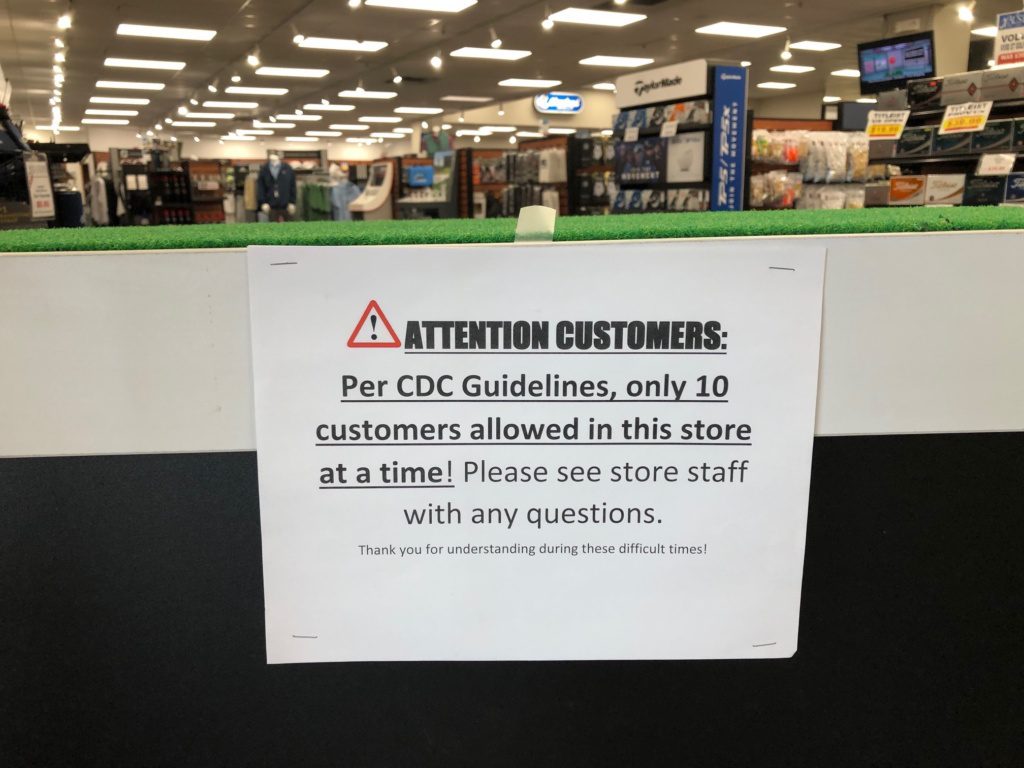
“It’s one customer and one master fitter, but we wash hands, and whatever clubs we build we sanitize before and after they touch the club,” Austad said. “We were concerned our customers would think it was overkill. But people have actually thanked us, which we feel really good about.”
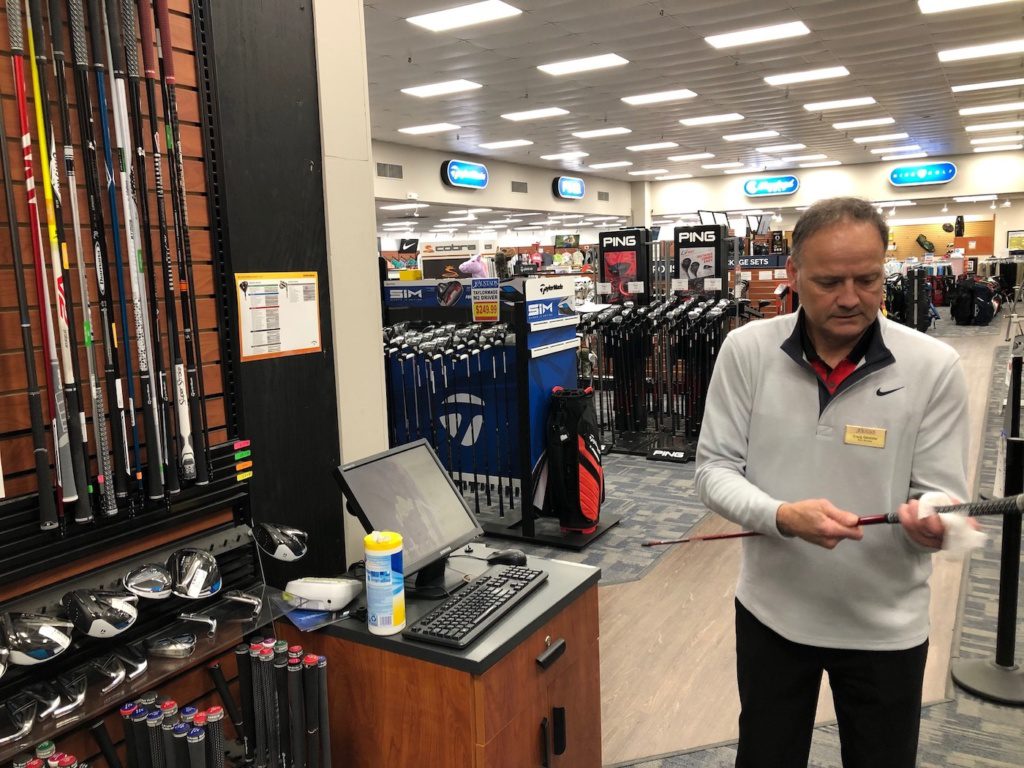
And the company felt more comfortable about the logistics of navigating COVID-19 thanks to its membership in the Prairie Family Business Association, which allowed the Austad’s to learn from experts and work through SBA lending options.
“We had applied for a loan and weren’t hearing back — the SBA is swamped — but Prairie Family Business had a contact and was able to get it to us and get a bunch of our questions answered,” Austad said. “Whether it’s webinars or just the contacts, Prairie Family Business has been immensely helpful in addition to being able to get together with different business leaders to talk about concerns, employees and safety.”
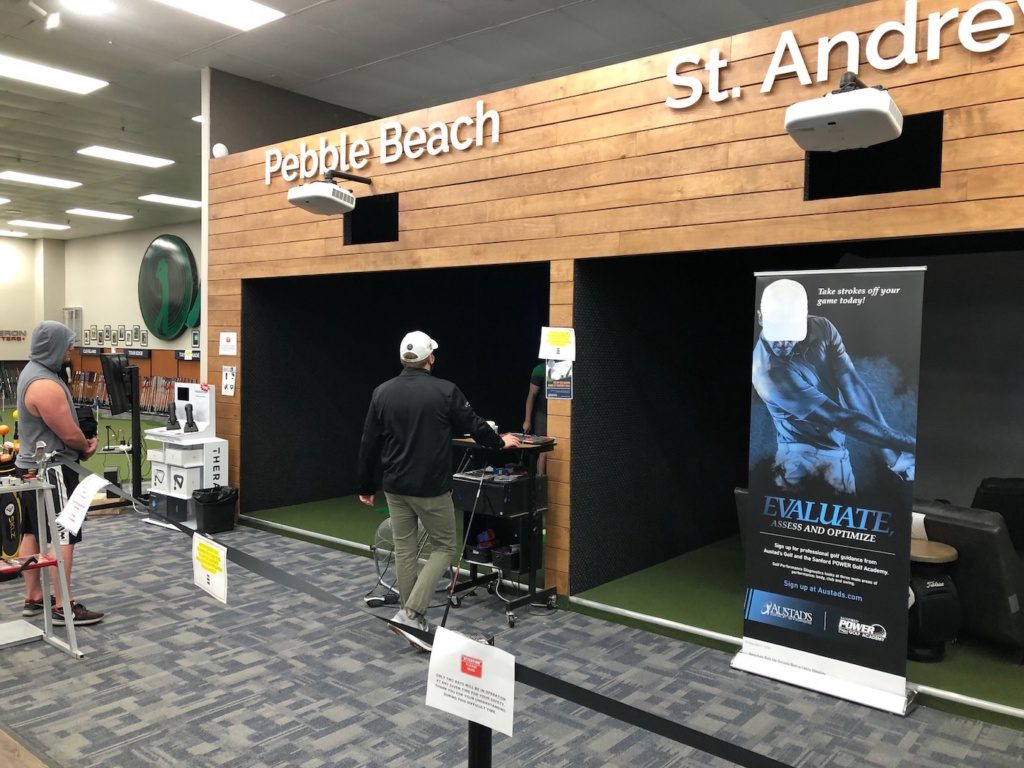
The company also did a four-day promotion to give 10 percent of sales to local food banks, which ended up raising a couple thousand dollars, and will continue to look for ways to give back, Austad said.
“We’re trying to think creatively. We’re trying to think about how to keep the business going and also help the community.”
To access Prairie Family Business Association COVID-19 resources, click here.

